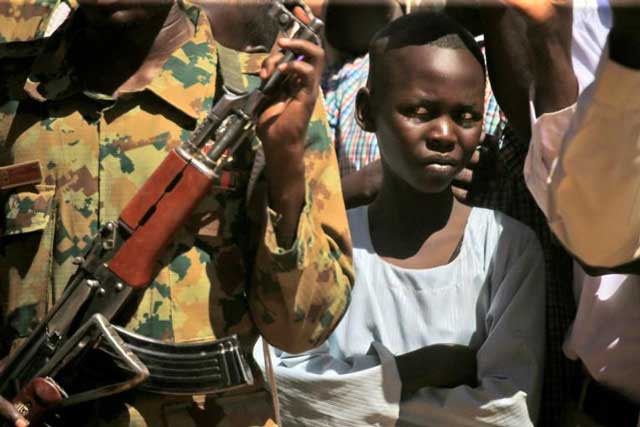
Khartoum, Sudan | AFP | An upsurge in bloody tribal clashes in Sudan has killed at least 59 people and wounded over 100 this month, heaping more pressure on the country’s fragile transitional government.
More than a year since the fall of longtime autocrat Omar al-Bashir, who ruled over ethnically diverse regions with an iron fist, the joint civilian-military administration has struggled to steady a politically and economically unstable Sudan.
In the latest inter-ethnic violence, 30 people were killed in clashes on May 7 between the Arab Rizeigat tribe and the Falata, who trace their roots to western Africa, sparked by a dispute over livestock.
Three days later, three people died, 79 were wounded and several homes were burnt down in violence between members of the Bani Amer and Nuba tribes in the eastern city of Kassala, near Sudan’s border with Eritrea.
This was followed by yet more lethal confrontations that left 26 people dead and 19 injured on May 13 in Kadugli, the capital of South Kordofan province.
Tribal grievances spilling over into bloodshed have been a mainstay of Sudan’s numerous ethnic conflicts since independence from British and Egyptian rule in 1956.
Sudan’s most notorious violence shook the Dafur region in 2003 when Bashir’s Arab-dominated government crushed an ethnic minority uprising in a scorched-earth campaign that killed 300,000 people and displaced 2.5 million.
More broadly, Sudan’s nomadic tribes, who mostly drive herds of cattle or camels over extremely arid lands, have often fought over scarce grazing lands, water and livestock.
But regional experts and tribal sources say the latest armed violence is different because the young Khartoum transitional government has been unable to exert political control and a security presence.
– ‘Culture of war’ –
The new prime minister, Abdalla Hamdok, embarked on peace talks with rebel groups last year, seeking to make the peace efforts a key plank of his mandate to govern.
The United Nations warned in a March report that even though armed rebel activity had declined, intercommunal tensions must be resolved to avert further violence.
But analysts see tensions now flaring again in the wake of years of wider political turmoil, including last year’s popular revolution in Sudan and the 2011 breakaway of South Sudan.
“Previous conflicts were taking place under a state that imposed its control over all of Sudan’s territory,” veteran analyst and newspaper publisher Mahgoub Salih told AFP.
“But after the secession of the south, these clashes are taking place in a country that has witnessed wars in a third of its provinces.
“A culture of war has escalated with the spread of illegal arms and the number of militias has increased.”
The bloodshed has fuelled talk of sinister plots to sow discord.
Falata tribal leader Youssef al-Samani insisted the recent clashes were an aberration, telling AFP that “our relationship with the Rizeigat has been solid over many decades, but other parties sowed this discord between us”.
Saleh Hussein, a Kassala resident, also maintained there is “absolutely a third party whose interest is to cause turmoil and fuel conflict”.
– A shadowy force? –
Military general and ruling council member Mohamed Hamdan Dagalo, widely known as Hemeti, has also described the recent violence as “all part of a prior plan” to foment instability.
He charged the goal of this “hidden hand” was “not only to target the Rapid Support Forces (RSF) but also to destroy Sudan”.
The RSF is the paramilitary group he leads, which is accused of war crimes in the Darfur conflict.
Al-Nur Hamad, a political analyst, also alleged a “third party” was at play but linked it to remnants of the Bashir regime.
“It is clear to everyone who has monitored the security situation in the country in the past few months that there are hands tampering with its security and stability,” he told AFP.
However, Aref El-Sawy, a Nairobi-based journalist specialising in ethnic conflicts in East Africa, dismissed the idea of a shadowy force stoking tribal conflicts.
“Conspiracy theories and the third party narrative can’t just be accepted at face value,” he said.
A security expert who spoke on the condition he not be named said tribal disputes during Bashir’s reign “were in remote rural areas and were about farms, water supplies or even turf wars over the land.
“But now they have entered urban areas.”
He argued that the tribal tensions now threaten the country’s already stalled peace talks with rebel groups.
Further escalating the danger, he said, is the fact that tribes are able to easily purchase weapons thanks to a thriving cross-border arms trade with Ethiopia and Eritrea, another sign of the new government’s lack of reach.
 The Independent Uganda: You get the Truth we Pay the Price
The Independent Uganda: You get the Truth we Pay the Price



